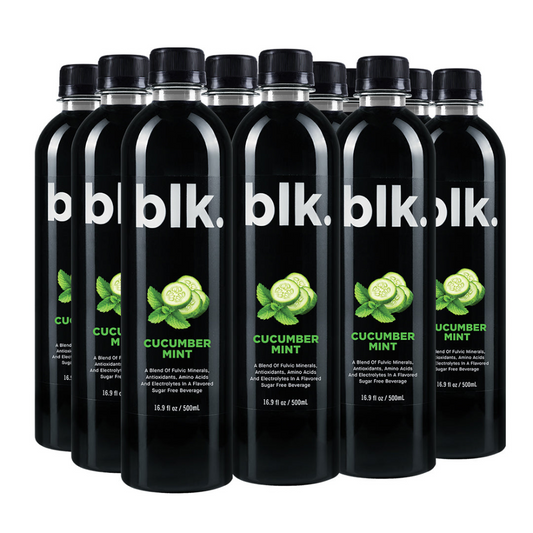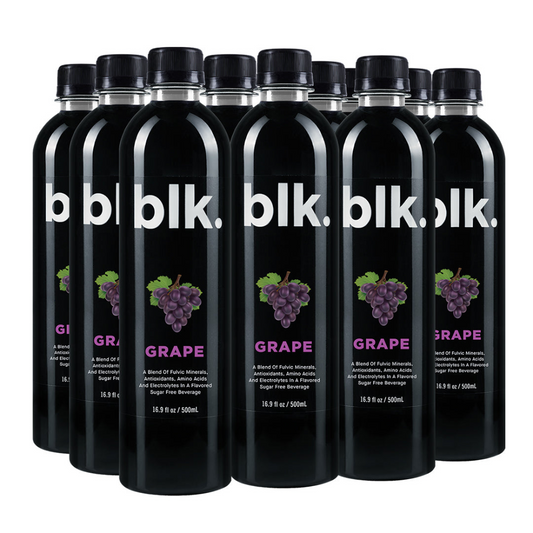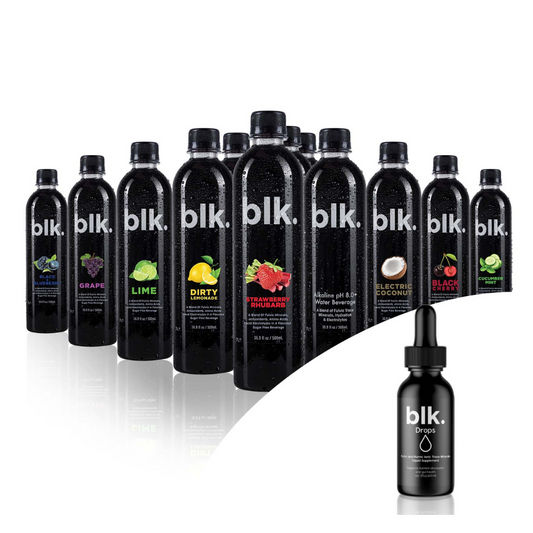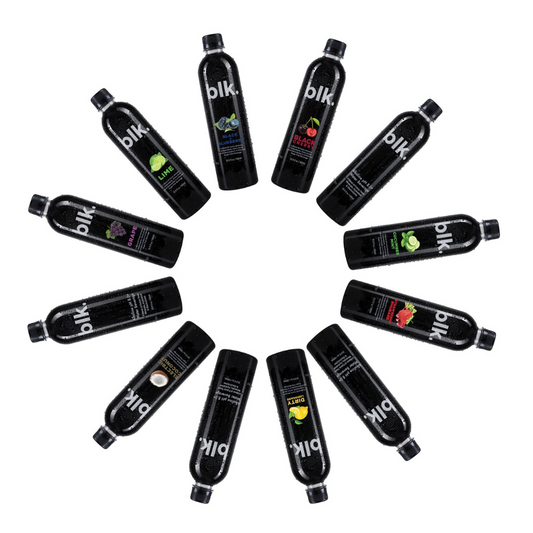
Plant-Based Protein: The Ultimate Guide
This article seeks to guide you on the following:
- What plant protein is
- How it compares to animal-based protein
- The best sources of plant-based protein
- The benefits of plant-based protein
Proteins are among the essential macronutrients vital for the well-being of your body. Amino acids are the building blocks of human tissue and are the main components of proteins. To gauge the nutritional value of proteins, you need to understand their amino acid profile, digestibility, and purity. There are two primary sources of protein: animal-based and plant-based protein. Plant protein can be extracted from various plant sources, such as soy, pea, lentils, hemp, and brown rice. This guide on plant-based protein focuses on different types of plant protein, various sources, benefits, the best plant-based protein for 2023, and a brief comparison between animal and plant protein.
What Is Plant Protein?
Veganism and vegetarianism have become popular in recent years in an effort for people to become more health focused. Since most of the protein powders available in the market were animal-based, it was incompatible with a vegan lifestyle. This encouraged the development of plant-based protein powders. Plant protein can be defined as protein extracted from plants. Plant-based protein can be consumed in many forms, including protein powders, soy milk, and meat alternatives.
Plant-Based Protein Powders
Protein powder can be derived/extracted from various plants. Each source of plant protein has different nutritional benefits that correspond with the source of the protein. You should choose the best plant protein that corresponds with your nutritional needs. The various sources of plant-based protein include peas, brown rice, soy, and hemp. This part of the article will focus on the different sources of plant-based protein and its nutritional benefits.
Pea Protein
Pea protein is primarily extracted from yellow split peas. This type of pea contains a higher protein content when compared to other types of peas. Pea protein is complete since it contains all 9 essential amino acids that do not occur naturally in the body. These amino acids are the building blocks for muscle tissue and aid in synthesizing protein into the muscle tissue. Pea protein powder has lower concentrations of methionine when compared to other sources of protein, like soy. This, however, does not reduce the quality of amino acids that pea protein offers.
Pea protein is also a rich source of Branched-chain Amino Acids (BCAA) that are vital in muscle growth. According to studies, pea protein is a rich source of arginine, leucine, valine, and isoleucine which are crucial in muscle development and vascular health. Arginine has been established to increase blood flow and aid in homeostasis. Leucine and isoleucine aid in synthesizing protein into muscle fibers during the recovery phase of your workout.
Another advantage of using pea protein powder is its digestibility. Plant protein is more challenging to digest than animal protein since enzymes break down cell walls to access the nutrients locked inside the cells. However, pea protein is among the easiest plant proteins to digest.
Soy Protein
Like whey, soy protein is by far the most popular source of plant protein. Soy protein can be found in various foods such as soy milk, tofu, and tempeh. Due to its availability, soy protein has been the most used plant-based protein powder. Soy protein is also a complete protein meaning it contains all the 9 amino acids not naturally produced by the body. It also has the highest protein amount per serving, making it popular with bodybuilders and fitness buffs.
Soy protein powder contains 25 grams of protein per ounce of protein powder. It also contains carbohydrates, calcium, iron, magnesium, potassium, and phosphorus which are vital in bodily functions. However, before taking soy protein, make sure you do not have a soy sensitivity since soy is a known allergen.
Hemp Protein
Hemp protein is extracted from hemp seeds. Hemp seeds are produced from cannabis sativa. Hemp defers from marijuana since hemp contains negligible amounts of tetrahydrocannabinol (THC), the primary psychoactive chemical in cannabis. Hemp protein is extracted from hemp seed hearts, which contain minimal quantities of THC. It is estimated that you could consume up to 300 grams of hemp protein without affecting drug test results.
Hemp protein is also a complete protein but contains low lysine concentrations. It also contains lower protein content per scoop than other protein sources. Hemp protein powder contains 50 grams of protein per 100 grams of protein powder. Where hemp protein lacks in protein content, it makes up in mineral and fiber content. Hemp protein provides 82 percent of the reference daily intake (RDI) of magnesium and 52 percent of the RDI of iron. It also contains high phosphorus, potassium, sodium, and calcium concentrations used in cell processes.
Brown Rice Protein
Brown rice protein is extracted from brown rice. It is an incomplete protein since it contains meager amounts of lysine. There is limited research on brown rice protein, but it is considered a low-quality plant-based protein. Though one study suggests that consuming 24 grams of brown rice protein had the same effect on performance as consuming a similar amount of whey protein.
Many people shun brown rice protein as it is considered inferior to soy and pea protein. Mixing brown rice protein and pea/soy protein canl boost the amount of protein consumed by the individual.
How to Incorporate Plant-Based Protein into Your Diet
You can incorporate plant-based protein into your diet in a number of ways. The importance of this is to ensure you are able to meet your fitness goals. Here are some ways you can incorporate plant-based protein into your diet.
Smoothies
Smoothies are a quick and easy way to increase your daily protein intake. Here is a delicious recipe to meet your daily nutrient requirement:
In a blender, put 1 cup of dairy-free milk (chocolate flavor preferred), 1 frozen banana, 1 tablespoon of instant coffee, 1 scoop of your favorite plant-based protein powder, and a handful of ice cubes. Blend all the ingredients and enjoy.
Yogurt Bowls
Another quick and easy plant-based protein recipe is a yogurt bowl. Here is an easy recipe to follow:
Put 1 serving of vegan plain yogurt in a bowl, half a scoop of vegan protein powder (choose your favorite flavor), half a tablespoon of maple syrup or honey, a third a cup of granola, half a cup of berries, and your favorite toppings. Chill and enjoy.
Plant-based supplements
You can also incorporate protein into your diet by using plant-based protein powder supplements. Depending on your goals, you can take these supplements anytime to increase your daily protein intake. To build muscle, you can take protein powder during and after your workout to provide your muscle tissue with the required muscle-building components. For weight control, take protein powder an hour before your meals to ensure you feel full and consume fewer calories as a result. This can be done whether you are eating out or having your meal at home.
How to Choose Plant-Based Protein
There are a number of considerations you need to make when choosing a plant-based protein powder. These include the ingredients and allergens, third-party certifications, price, customer reviews and ratings, and brand repute.
Ingredients and allergens
Look at the ingredient list to ensure it is allergen-free. Common allergens such as soy and gluten are found in many plant-based proteins. It is important to ensure the product’s ingredient list contains no compound you are allergic to or sensitive to. The ingredient list will also help you determine the quality of the product. Different plant-based protein powders are incomplete and will be less effective than complete protein sources. Finding the right blend of ingredients that offers a complete amino acid profile is important.
Third-party certifications
These certifications are equivalent to a mark of quality. Look out for reputable certifications such as Certified Gluten Free, Non-GMO Project Certified, and USDA Organic, which test the products to ensure the ingredients are high quality and allergen-free.
Price and customer review
Consider protein powders that fit your budget. Customer reviews also ensure you get insight from individuals who have used the product to ensure it is effective. Some customer reviews, however, are fake and not to be taken seriously. Look at different online stores to ensure the reviews you see are consistent.
Brand repute
The final consideration you need to make is brand repute. Some brands are market giants and make very good products, while others offer substandard products. Considering brand repute will ensure you get the best products that meet your needs.
Best Plant Protein of 2023
You can get the best plant-based protein products from ripped.com. These products are from reputable brands, are highly rated, and only utilize the highest quality ingredients. These are the best plant protein powders of 2023.
- On: Gold Standard 100% Plant Plant-Based Protein Chocolate 19 Servings is the best-selling plant-based product from ripped.com. It has received a high rating for its pea, rice, and sacha inchi protein blend. This blend provides all the 9 essential amino acids required for muscle development and optimum health.
- Fit&Lean: Plant Protein Chocolate Fudge 15 Servings is another top-rated plant-protein powder. It is made from the highest quality blend of pea, brown rice, and fava bean blend to ensure you receive a complete amino acid profile. This protein powder provides 20 grams of protein per scoop to ensure you can build and maintain muscle tissue. It can also be used to manage weight when used towards that goal.
- Nutrakey: Vegan V Pro Banana Nut Bread 30 Servings is a delicious plant-based protein powder that is stevia and gluten-free. It provides 20 grams of protein per serving to ensure you can build and maintain muscle tissue without sacrificing your vegetarian or vegan lifestyle.
Nutritional Comparison Of Plant-Based Protein Vs. Animal Proteins
Plant and animal proteins have different nutritional benefits. They vary in the number of calories, amino acid profiles, bioavailability, fiber, and fats. Animal protein is easier to digest when compared to plant protein since the cell wall surrounds plant cells. Animal cells are surrounded by a membrane that is easier to break down to access the nutrients locked within the cells. This part of the article will compare the nutritional values of plant and animal protein.
Protein Content
All animal proteins are considered complete proteins. This means they contain all the 9 essential amino acids essential in muscle development. Plant protein, on the other hand, is often considered an incomplete protein. Except for peas and soy, most other plant proteins contain low concentrations of essential amino acids, making them incomplete proteins. To get all the 9 essential amino acids in your diet, you need to eat a variety of plant products.
Animal protein contains more protein per serving as compared to plant protein. Animal protein also contains more calories per serving as compared to plant protein. It is considered superior to plant protein due to its digestibility and amino acid profile. Since animal proteins have a complete amino acid profile, they are easier to build into protein for lean muscle mass as compared to plant protein.
Fiber
Plant protein contains more fiber than animal protein. Hemp protein is the best way to get fiber into your diet. It contains about 17.9 grams of fiber per 100 grams of organic hemp protein powder. This is because hemp seeds have a dense covering that contains about 80 percent insoluble fiber and 20 percent soluble fiber.
Fiber is essential in the digestive process and helps prevent constipation. Fiber also inhibits the absorption of carbs into the body, ensuring that you have fewer carbohydrates in your bloodstream. Low-fiber carbs are unhealthy for you because they may cause insulin resistance and cravings.
Fat
Plant protein contains higher concentrations of unsaturated fats. Unsaturated fats are dietary fats that are liquid at room temperature. The lower density of these fats makes them easier to break down to release energy.
Saturated fats, on the other hand, are solid at room temperature and are tightly packed together. Unsaturated fats are beneficial to the body since they are unlikely to contain cholesterol.
Animal-based proteins have a higher concentration of saturated fats. This can be observed in the fatty layers found in meat and poultry. It is recommended that you limit saturated fats in your diet.
Minerals
Hemp protein has the highest mineral concentration compared to other plant proteins. It contains up to 80 percent of the recommended daily intake of magnesium and 50 percent of iron. These minerals benefit the body by offering building blocks for various blood components. Iron is vital in forming hemoglobin, while magnesium is essential in hormonal regulation. The benefits of magnesium include muscle development, supporting nerve function, and helping in energy production. Heme, found in iron, is utilized by cells to produce hemoglobin to transport oxygen from the lungs to the rest of the body.
Animal-based protein sources contain lower amounts of minerals as compared to plant protein. Milk and milk products contain the highest calcium in animal-based proteins at 76 milligrams. It, however, contains lower magnesium and iron at 20 and 2.4 milligrams, respectively.
Common misconceptions about plant-based protein
-
Plant proteins are incomplete proteins
Plant proteins are complete proteins, albeit they might contain lower concentrations of some amino acids. They mostly contain lower concentrations of lysine in most cases, but they are not completely devoid of these compounds. They are nearly complete proteins but not incomplete protein sources.
-
Plant proteins will make you lose muscle mass
Plant proteins contain ingredients necessary to build and maintain muscle. They also contain adequate protein to supplement your daily protein intake. The notion that since they contain a lower amount of protein, they will make you lose muscle mass is unfounded.
Benefits of Plant-Based Protein
Plant protein is very beneficial to the body. Its high fiber content is beneficial to the body as it aids in digestion and prevents constipation. Plant protein also contains unsaturated fats that are easily broken down to release energy beneficial to the body. The energy can be used during workouts to give you a boost to power through your workout regimen.
Plant protein is a high-mineral diet. It contains minerals such as magnesium, potassium, phosphorus, iron, and sodium. These minerals are beneficial in bodily functions. In cells and neurons, potassium and sodium transmit information between cells. Inadequacy in these types of minerals can have adverse effects on your health and well-being.
Environmental Sustainability
A study to determine the impact of shifting from an omnivorous diet to a vegan diet determined that the switch reduced personal carbon emissions by 50 percent. Carbon emissions have been a factor of consideration in recent years. Climate change has become a concern, and carbon emissions are the main contributing factor. People are trying to do their part by reducing their carbon emissions and pollution by making lifestyle changes to save the planet.
Increasing your plant protein intake is more sustainable than animal protein consumption. Plants are easily grown on farms or in your backyard for domestic use.
However, animal protein requires the rearing of animals, continued feeding, slaughter, and processing of the animal before it can be consumed. This is also true for animal products since only sexually mature animals can produce milk. This whole process consumes a lot of energy and is unsustainable compared to plant protein.
Land use is also another consideration you need to make. Farmland is used to grow corn and other plants that are primarily used as livestock feed. This means you need more land for rearing animals than growing food crops.
Plants for subsistence can be grown instead of using large tracts of land dedicated to animal feed. Land use and water use go hand in hand. A lot of water is used to irrigate crops grown for animal feed. This reduces the water available for human consumption and utilization.
Ethical and Humane Treatment of Animals
The discussion on how animals should be treated has persisted over the years. Some argue that all animals should be treated as pets are treated. They should not be used for food or work. Others argue that animals can be used for food since they are nutritionally beneficial to us. It is essential to consider that animals are intelligent creatures that should be treated humanely.
They serve different purposes to support human life. Slaughter has long been considered an inhumane way of treating animals, and the slaughter of animals has been made less painful for the animals. This can be done by stunning the animal before slaughter to ensure it feels no pain. Depending on which school of thought you subscribe to, it is generally agreed that slaughter is cruel to the animals.
Conclusion
In conclusion, plant-based protein is an essential source of protein, fiber, and minerals. Soy and pea are complete protein sources since they contain the 9 essential amino acids crucial in protein synthesis. Plant-based proteins offer high-quality minerals and fiber that are beneficial for bodily functions and digestion. Taking plant-based protein is vital due to its nutritional value and sustainability.
Frequently Asked Questions
-
Can Plant-Based Protein Help With Weight Loss?
-
What Are The Best Plant-Based Protein Powders?
-
Is plant-based protein good for inflammation?
-
Why is vegan protein powder more expensive than whey protein powder




